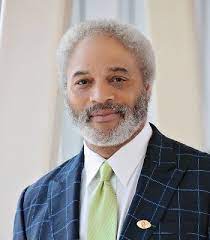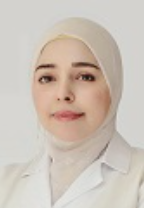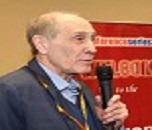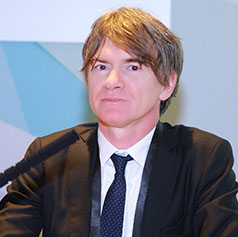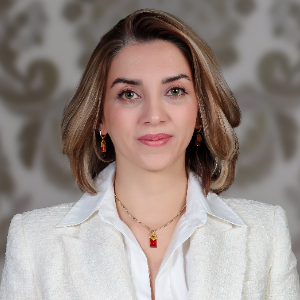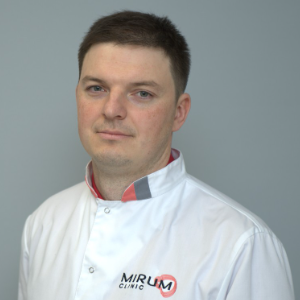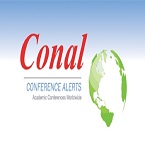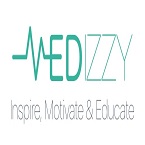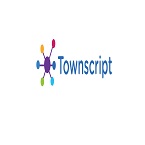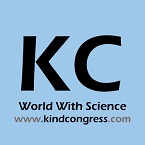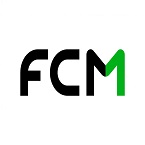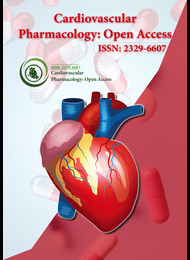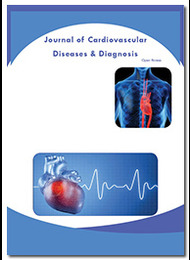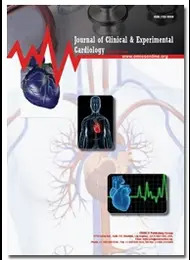Theme: Contemporary Approaches and Innovative Techniques in Treating Heart Disease
CARDIAC SURGERY 2024
- About Conference
- Session and Tracks
- Abstract Submission Criteria and Eligibility
- Participation Options and Benefits
- Market Analysis
- Visa Travel Consultant
- Past Conference Report
Conference series proudly announces the “3rd Global Summit on Cardiology and Cardiac Surgery,” which will be held during September 16–17, 2024 in Paris, France. The theme of the conference is “Contemporary Approaches and Innovative Techniques in Treating Heart Disease”. CARDIAC SURGERY 2024 Conference will be an investigation of new research Innovation in the field of Cardiology and spread the most recent advancements in heart disease prevention and rehabilitation. Discussion on new technological advancements in the field of Cardiovascular Disease, current practices in cardiovascular therapy, Cardiac progenitor cells, Hypertension for the primary care clinician, Stent procedures, Balloon Valvuloplasty, Coronary Thrombectomy, Noninvasive cardiac imaging, Heart failure, Congestive heart failure, Sports Cardiology and more. Detecting heart disease and other cardiac conditions, involves a team of healthcare professionals, of which the Cardiology technologist is a key player.
The market is mainly driven by the increasing research funding for cardiology from governments and investors, the growing demand for personalized medicine in the U.S. and Europe, and the increasing need for toxicology testing.
Abstract Submission
Abstracts should be prepared within 250 to 300 words, and the submission procedure is online. The deadline for this submission is August 06, 2024. An abstract is a summary of your research include author details, methodologies used in the research, observations, and future aspects. Participants can choose their type of presentation while submitting the abstract, i.e., oral or poster presentation.
Early bird registration deadline:
The early bird dates for the upcoming “3rd Global Summit on Cardiology and Cardiac Surgery” are going to be closed August 06, 2024. We request that each and every participant register early to get an early confirmation. For group participation and packages, reach us at "worldcardiology@euroconferences.net.".
CARDIAC SURGERY 2024 reunites the old and new faces in cardiac research in order to scale up many dedicated brains in research and the utilization of the works in businesses by driving cardiologists, medical directors, cardiac specialists, cardiac surgeons, cardiology care nurses, and scholars from all over the world to share their thoughts and to feature their accomplishments, offering the opportunity to learn about unexpected research and talk about interventional systems.
Track 1: Cardiac Electrophysiology
The science of cardiac electrophysiology focuses on understanding, identifying, and treating the electrical processes of the heart. Invasive (intracardial) catheter recording of both spontaneous activity and cardiac responses to pre-programmed electrical stimulation is employed to study these phenomena, and the word PES is used to describe these studies (PES). These investigations are carried out to analyze complex arrhythmias, clarify symptoms, examine aberrant electrocardiograms, determine the likelihood of future arrhythmia development, and formulate a treatment plan. Along with diagnostic and prognostic procedures, these procedures mostly involve therapeutic techniques (usually radiofrequency ablation, or cryoablation).
Cardiac Surgery Conferences:
Cardiac Surgery 2024 | Cardiology Conferences | Cardio Summit | Cardiac Surgery Meetings | Cardiac Surgery Conferences | Global Cardiac Surgery| Hospital Management Conferences| Cardiovascular Pharmacology | Cardio-Oncology and Nuclear Cardiology| Cardiac Nursing: Acute and Chronic Cardiac Care
Related Societies:
American College of Cardiology | American Society of Echocardiography | European Society of Cardiology | National Heart Foundation of Australia | National Heart, Lung, and Blood Institute | Society for Vascular Surgery | Women's Heart Foundation | World Heart Federation
Track 2: Clinical Cardiology
The condition affecting the cardiovascular system, which includes the heart and blood vessels, is examined and treated by a clinical cardiologist. In order to treat and prevent heart attacks, coronary artery disorders, and other conditions of a similar nature, cardiac surgery 2024 will utilize drugs and other non-surgical techniques. Cardiac Surgery 2024 will include topics like Cardiovascular Medicine, Percutaneous Coronary Intervention, Cardiac Progenitor Cell Applications, and many more at the worldwide cardiology congress. Clinical Cardiology is being studied in many universities.
Cardiac Surgery Conferences:
Cardiac Surgery 2024 | Cardiology Conferences | Cardio Summit | Cardiac Surgery Meetings | Cardiac Surgery Conferences | Global Cardiac Surgery| Hospital Management Conferences| Cardiovascular Pharmacology | Cardio-Oncology and Nuclear Cardiology| Cardiac Nursing: Acute and Chronic Cardiac Care
Related Societies:
American College of Cardiology | American Society of Echocardiography | European Society of Cardiology | National Heart Foundation of Australia | National Heart, Lung, and Blood Institute | Society for Vascular Surgery | Women's Heart Foundation | World Heart Federation
Track 3: Cardiovascular Disease and Nutrition
In Western nations, cardiovascular disease (CVD) is the main killer, accounting for over 30% of global fatalities. Healthy eating habits and lifestyle choices are useful at preventing CVD, according to the evidence. Furthermore, the prevention of CVD (or cardiovascular events) by dietary and lifestyle changes has become a top concern for public health due to the increased incidence of CVD over the past 25 years. Current scientific research demonstrates that, as compared to healthy eating habits, like the "Mediterranean diet" (Me Diet), Western dietary patterns cause an excess production of proinflammatory cytokines and a decrease in the synthesis of anti-inflammatory cytokines. In actuality, dietary intervention enables better blending of various meals and nutrients. As a result, the potential benefits of a healthy dietary pattern are greater than those of a single nutritional supplement.
Cardiac Surgery Conferences:
Cardiac Surgery 2024 | Cardiology Conferences | Cardio Summit | Cardiac Surgery Meetings | Cardiac Surgery Conferences | Global Cardiac Surgery| Hospital Management Conferences| Cardiovascular Pharmacology | Cardio-Oncology and Nuclear Cardiology| Cardiac Nursing: Acute and Chronic Cardiac Care
Related Societies:
American College of Cardiology | American Society of Echocardiography | European Society of Cardiology | National Heart Foundation of Australia | National Heart, Lung, and Blood Institute | Society for Vascular Surgery | Women's Heart Foundation | World Heart Federation
Track 4: Women's Cardiovascular Health
All ages and ethnicities of women are impacted by heart disease. It is the main reason for death among women around the world. But a lot of women are unaware that they are vulnerable. They are unaware of their risk factors and the fact that early warning symptoms can vary between men and women. Women and those who were classified as female at birth (DFAB) have the power to start lowering their risks once they are aware of them.
People who were identified as female at birth (DFAB) and women are particularly affected by cardiovascular disease. The prevalence of cardiovascular disease in men and women appears to be influenced by differences in the sexes' anatomy, red blood cell counts, and hormones.
Cardiac Surgery Conferences:
Cardiac Surgery 2024 | Cardiology Conferences | Cardio Summit | Cardiac Surgery Meetings | Cardiac Surgery Conferences | Global Cardiac Surgery| Hospital Management Conferences| Cardiovascular Pharmacology | Cardio-Oncology and Nuclear Cardiology| Cardiac Nursing: Acute and Chronic Cardiac Care
Related Societies:
American College of Cardiology | American Society of Echocardiography | European Society of Cardiology | National Heart Foundation of Australia | National Heart, Lung, and Blood Institute | Society for Vascular Surgery | Women's Heart Foundation | World Heart Federation
Track 5: Cardio Oncology
The study of cardiovascular disease that develops as a result of chemotherapy and radiotherapy is the focus of the emerging specialty of cardiology known as cardio-oncology. Cardiovascular disease is also monitored and treated in this setting. A significant source of morbidity and mortality in the oncologic population, cardiac dysfunction can be brought on by either cancer therapy method. It is important to routinely check on cancer patients receiving treatment, especially those getting anthracyclines and trastuzumab (a monoclonal antibody). The main method used for this is 3D echocardiography, which can be used to calculate the left ventricular ejection fraction and gauge myocardial deformation. It may also be possible to detect potential cardiotoxicity early and respond appropriately by evaluating different biomarkers, such as natriuretic peptides.
Cardiac Surgery Conferences:
Cardiac Surgery 2024 | Cardiology Conferences | Cardio Summit | Cardiac Surgery Meetings | Cardiac Surgery Conferences | Global Cardiac Surgery| Hospital Management Conferences| Cardiovascular Pharmacology | Cardio-Oncology and Nuclear Cardiology| Cardiac Nursing: Acute and Chronic Cardiac Care
Related Societies:
American College of Cardiology | American Society of Echocardiography | European Society of Cardiology | National Heart Foundation of Australia | National Heart, Lung, and Blood Institute | Society for Vascular Surgery | Women's Heart Foundation | World Heart Federation
Track 6: Nuclear Cardiology
Non-invasive methods are used in nuclear cardiology research to evaluate the heart's pumping capacity, measure myocardial blood flow, and see how big and where a heart attack is happening. Myocardial perfusion imaging is the most frequently employed method in nuclear cardiology.
By evaluating the LVEF, nuclear cardiology with radioactive ventriculography is frequently used to assess ventricular function. However, these procedures have very slow preparation and scanning durations, and they have low spatial and temporal resolution. Additionally, it is challenging to quantify ventricular volumes, which are rarely done in clinical settings (though they are occasionally used for research), and ventricular mass cannot be determined.
Cardiac Surgery Conferences:
Cardiac Surgery 2024 | Cardiology Conferences | Cardio Summit | Cardiac Surgery Meetings | Cardiac Surgery Conferences | Global Cardiac Surgery| Hospital Management Conferences| Cardiovascular Pharmacology | Cardio-Oncology and Nuclear Cardiology| Cardiac Nursing: Acute and Chronic Cardiac Care
Related Societies:
American College of Cardiology | American Society of Echocardiography | European Society of Cardiology | National Heart Foundation of Australia | National Heart, Lung, and Blood Institute | Society for Vascular Surgery | Women's Heart Foundation | World Heart Federation
Track 7: Paediatric Cardiology
The National Health Organization's pediatric cardiology program focuses on diagnosing and treating heart illnesses in newborns and young children. Dietetics, socialist staff nurses, doctors, and therapists are all available at the Narayana Health Care Centre for comprehensive care. The diagnosis and treatment of cardiac conditions in infants, children, and babies is the area of expertise of pediatric cardiologists in India. Numerous heart conditions can impact children. There are certain structural problems in some newborns. Diagnostic and therapeutic management of these heart abnormalities is a specialty of pediatric cardiologists.
Although not extremely frequent, heart conditions and issues among children under the age of 18 are rising alarmingly in the nation today. These may result from a number of reasons, including, but not limited to, the ones listed below:
- Genetics
- unhealthy way of life
- Smoking and drinking during pregnancy by the mother, etc.
- first trimester of pregnancy, viral infection
Cardiac Surgery Conferences:
Cardiac Surgery 2024 | Cardiology Conferences | Cardio Summit | Cardiac Surgery Meetings | Cardiac Surgery Conferences | Global Cardiac Surgery| Hospital Management Conferences| Cardiovascular Pharmacology | Cardio-Oncology and Nuclear Cardiology| Cardiac Nursing: Acute and Chronic Cardiac Care
Related Societies:
American College of Cardiology | American Society of Echocardiography | European Society of Cardiology | National Heart Foundation of Australia | National Heart, Lung, and Blood Institute | Society for Vascular Surgery | Women's Heart Foundation | World Heart Federation
Track 8: Cardiac Nursing
Cardiac nursing is a nursing specialty that deals with patients who have different cardiovascular diseases. Under the supervision of a cardiologist, cardiac nurses provide care for patients suffering from cardiac dysrhythmia, unstable angina, cardiomyopathy, coronary artery disease, congestive heart failure, and other disorders.
Cardiac nurses provide postoperative care in a surgical unit, stress test analyses, cardiac monitoring, vascular monitoring, and health evaluations. Cardiac nurses are required to be certified in both Basic and Advanced Cardiac Life Support. Additionally, cardiac nurses need to be skilled in administering medication via continuous intravenous drip, defibrillation, and ECG monitoring. [1] Cardiac nurses operate in a variety of settings, including coronary care units (CCU), cardiac catheterization, intensive care units (ICU), operating rooms, cardiac rehabilitation centers, clinical research, cardiac surgery wards, cardiovascular intensive care units (CV ICU), and cardiac medical wards.
Cardiac Surgery Conferences:
Cardiac Surgery 2024 | Cardiology Conferences | Cardio Summit | Cardiac Surgery Meetings | Cardiac Surgery Conferences | Global Cardiac Surgery| Hospital Management Conferences| Cardiovascular Pharmacology | Cardio-Oncology and Nuclear Cardiology| Cardiac Nursing: Acute and Chronic Cardiac Care
Related Societies:
American College of Cardiology | American Society of Echocardiography | European Society of Cardiology | National Heart Foundation of Australia | National Heart, Lung, and Blood Institute | Society for Vascular Surgery | Women's Heart Foundation | World Heart Federation
Track 9: Cardiac Surgery
Cardiovascular surgery, often known as cardiac surgery, refers to operations on the heart or large blood vessels. It is frequently used to treat congenital heart disease, valvular heart disease from many sources, including endocarditis, rheumatic heart disease, and atherosclerosis, as well as consequences of ischemic heart disease (for instance, after coronary artery bypass grafting). Additionally, heart transplants are part of it.
When other treatments have failed or are not an option, cardiac surgery can treat some heart conditions. Heart surgery could occasionally constitute a medical emergency. For instance, a serious heart attack may require immediate surgery. In some circumstances, you can schedule heart surgery in advance. Heart bypass surgery, which opens blocked cardiac arteries, is one type of significant heart procedure. Other surgeries, including implanting a pacemaker, are less major heart operations.
Cardiac Surgery Conferences:
Cardiac Surgery 2024 | Cardiology Conferences | Cardio Summit | Cardiac Surgery Meetings | Cardiac Surgery Conferences | Global Cardiac Surgery| Hospital Management Conferences| Cardiovascular Pharmacology | Cardio-Oncology and Nuclear Cardiology| Cardiac Nursing: Acute and Chronic Cardiac Care
Related Societies:
American College of Cardiology | American Society of Echocardiography | European Society of Cardiology | National Heart Foundation of Australia | National Heart, Lung, and Blood Institute | Society for Vascular Surgery | Women's Heart Foundation | World Heart Federation
Track 10: Diabetic Cardiomyopathy
In large part due to an increase in age, obesity, and diabetes mellitus, heart failure and accompanying morbidity and mortality are rising alarmingly quickly. Patients with diabetes mellitus experience much worse clinical outcomes from heart failure than patients without the condition. The phrase "diabetic cardiomyopathy" refers to the existence of cardiac dysfunction in persons with diabetes mellitus in the absence of overt clinical coronary artery disease, valvular disease, and other traditional cardiovascular risk factors, such as hypertension and dyslipidemia. Alongside the rise in diabetes mellitus, the prevalence of diabetic cardiomyopathy is also rising. Myocardial fibrosis, dysfunctional remodeling, and concomitant diastolic dysfunction are the early symptoms of diabetic cardiomyopathy. Systolic dysfunction and clinical heart failure are later symptoms.
Cardiac Surgery Conferences:
Cardiac Surgery 2024 | Cardiology Conferences | Cardio Summit | Cardiac Surgery Meetings | Cardiac Surgery Conferences | Global Cardiac Surgery| Hospital Management Conferences| Cardiovascular Pharmacology | Cardio-Oncology and Nuclear Cardiology| Cardiac Nursing: Acute and Chronic Cardiac Care
Related Societies:
American College of Cardiology | American Society of Echocardiography | European Society of Cardiology | National Heart Foundation of Australia | National Heart, Lung, and Blood Institute | Society for Vascular Surgery | Women's Heart Foundation | World Heart Federation
Track 11: Gynaecologic/Obstetric Emergencies
Gynecological emergencies are illnesses that affect the female reproductive system and endanger a woman's life, sexual function, and ability to have children. Common gynecological emergencies frequently stem from pelvic inflammatory disease (PID), problems with contraception, sudden abdominal pain, irregular vaginal bleeding, or a mix of both.
Acute gynecological issues, including pelvic discomfort, severe hemorrhagic problems, vulval problems, acute PID, hyperemesis gravid arum, and post-gynecology surgery problems, can be quickly treated in some hospitals, primarily in the developed world. Specialist nurses, biologists, and an on-call gynecology medical team led by a consultant gynecologist are frequently on duty in these units. The goal of such a unit is to provide prompt, adequate healthcare, minimizing potential complications and, in turn, minimizing the morbidity and mortality related to such situations. New antibiotics, limited-access surgery, biochemical pregnancy testing, and advances in sonography have all made it possible to diagnose these problems earlier and use more conservative treatment modalities.
Cardiac Surgery Conferences:
Cardiac Surgery 2024 | Cardiology Conferences | Cardio Summit | Cardiac Surgery Meetings | Cardiac Surgery Conferences | Global Cardiac Surgery| Hospital Management Conferences| Cardiovascular Pharmacology | Cardio-Oncology and Nuclear Cardiology| Cardiac Nursing: Acute and Chronic Cardiac Care
Related Societies:
American College of Cardiology | American Society of Echocardiography | European Society of Cardiology | National Heart Foundation of Australia | National Heart, Lung, and Blood Institute | Society for Vascular Surgery | Women's Heart Foundation | World Heart Federation
Track 12: Endocrine/Neurological Emergencies
Endocrine emergencies are a group of uncommon and severe symptoms of typical endocrine problems that are frequently brought on by an aggravating circumstance, like a recent infection. The underlying endocrine problem may first manifest as an endocrine emergency. With the increasing severity of the endocrine dysfunction, the neurologic and systemic side effects of endocrine disorders typically get worse. However, the rate of change is crucial since severe but longstanding endocrine failure may have very mild symptoms, but quick changes may cause considerable neurologic impairment. Clinical neurologists should be aware of the neurologic symptoms of endocrine problems, since many of these endocrine emergencies can be successfully handled with an early and precise diagnosis.
Insufficient or excessive hormone production leads to endocrine diseases. Due to hormones' widespread effects on several organs and systems, including the neurological system, the clinical course is protracted, and the signs are nonspecific. This is a narrative summary of recent research on the methods used to diagnose and treat severe medical and neurological emergencies.
Cardiac Surgery Conferences:
Cardiac Surgery 2024 | Cardiology Conferences | Cardio Summit | Cardiac Surgery Meetings | Cardiac Surgery Conferences | Global Cardiac Surgery| Hospital Management Conferences| Cardiovascular Pharmacology | Cardio-Oncology and Nuclear Cardiology| Cardiac Nursing: Acute and Chronic Cardiac Care
Related Societies:
American College of Cardiology | American Society of Echocardiography | European Society of Cardiology | National Heart Foundation of Australia | National Heart, Lung, and Blood Institute | Society for Vascular Surgery | Women's Heart Foundation | World Heart Federation
Track 13: Current Research in Cardiology
Interventional cardiology focuses on more intrusive therapies, frequently utilizing catheters and stenting, as opposed to preventive or non-invasive methods of treatment like lifestyle modifications and the majority of imaging modalities. Researchers at Johns Hopkins are working to improve the effectiveness and safety of these medicines.
In the past, high-risk individuals with aortic stenosis, or a narrowing of the aortic heart valve, had little choice but to undergo open-heart surgery. For the majority of patients who require aortic valve replacement, the less invasive trans catheter aortic valve replacement (TA VR), in which a new valve is implanted inside the unhealthy one, has gained popularity as the safest option. Clinical trials are currently being carried out by Johns Hopkins researchers to see if low-risk patients will also benefit from this surgery. The Johns Hopkins TA VR doctors' thorough training contributes to the best possible procedural results. Researchers are now better able to analyze outcomes and support TA VR studies in the future, thanks to the construction of a database that includes all patients who have received TA VR at Johns Hopkins.
Cardiac Surgery Conferences:
Cardiac Surgery 2024 | Cardiology Conferences | Cardio Summit | Cardiac Surgery Meetings | Cardiac Surgery Conferences | Global Cardiac Surgery| Hospital Management Conferences| Cardiovascular Pharmacology | Cardio-Oncology and Nuclear Cardiology| Cardiac Nursing: Acute and Chronic Cardiac Care
Related Societies:
American College of Cardiology | American Society of Echocardiography | European Society of Cardiology | National Heart Foundation of Australia | National Heart, Lung, and Blood Institute | Society for Vascular Surgery | Women's Heart Foundation | World Heart Federation
Track 14: Heart Diagnosis
Heart disease is any condition that affects your heart, such as coronary artery disease and arrhythmia. According to the Centers for Disease Control and Prevention (CDC), heart disease is responsible for 1 in 4 deaths in the United States each year. It’s a leading cause of death in both men and women. To diagnose heart disease, your doctor will perform a series of tests and evaluations. They may also use some of these tests to screen you for heart disease before you develop noticeable symptoms.
Heart disease describes a range of conditions that affect the heart. Heart diseases include:
Blood vessel disease, such as coronary artery disease
- Irregular heartbeats (arrhythmias)
- Heart problems you're born with (congenital heart defects)
- Disease of the heart muscle
- Heart valve disease
Many forms of heart disease can be prevented or treated with healthy lifestyle choices.
Cardiac Surgery Conferences:
Cardiac Surgery 2024 | Cardiology Conferences | Cardio Summit | Cardiac Surgery Meetings | Cardiac Surgery Conferences | Global Cardiac Surgery| Hospital Management Conferences| Cardiovascular Pharmacology | Cardio-Oncology and Nuclear Cardiology| Cardiac Nursing: Acute and Chronic Cardiac Care
Related Societies:
American College of Cardiology | American Society of Echocardiography | European Society of Cardiology | National Heart Foundation of Australia | National Heart, Lung, and Blood Institute | Society for Vascular Surgery | Women's Heart Foundation | World Heart Federation
Track 15: Case Reports on Cardiology
Case Reports publishes high-quality, valuable, educational case reports, images, and quality improvement projects in all aspects of cardiology and cardiovascular medicine. The cases will be of interest to senior medical students and doctors during the early stages of their medical careers.
The primary aim is to promote learning among junior cardiologists as regards both the published content and the review-and-editorial process. The journal operates a mentorship plan to develop junior reviewers and editors under the close guidance of experienced senior reviewers and editors.
Cardiac Surgery Conferences:
Cardiac Surgery 2024 | Cardiology Conferences | Cardio Summit | Cardiac Surgery Meetings | Cardiac Surgery Conferences | Global Cardiac Surgery| Hospital Management Conferences| Cardiovascular Pharmacology | Cardio-Oncology and Nuclear Cardiology| Cardiac Nursing: Acute and Chronic Cardiac Care
Related Societies:
American College of Cardiology | American Society of Echocardiography | European Society of Cardiology | National Heart Foundation of Australia | National Heart, Lung, and Blood Institute | Society for Vascular Surgery | Women's Heart Foundation | World Heart Federation
Track 16: Cardiopulmonary Rehabilitation and Prevention
Cardiac rehabilitation is an important program for everybody getting better from a coronary heart attack, coronary heart failure, or other coronary heart hassle that required surgical operation or clinical care. Cardiac rehabilitation entails adopting coronary heart-healthful way of life adjustments to cope with hazard elements for cardiovascular disease. To assist in making lifestyle adjustments, this program consists of workout training, training on coronary heart-healthful living, and counseling to lessen pressure and help you live an energetic life.
Cardiac rehabilitation can enhance fitness and quality of life and lessen the want for drug treatments to deal with coronary heart or chest pain. The cardiac rehabilitation team consists of doctors, nurses, workout specialists, bodily and occupational therapists, dieticians or nutritionists, and intellectual fitness specialists.
Cardiac Surgery Conferences:
Cardiac Surgery 2024 | Cardiology Conferences | Cardio Summit | Cardiac Surgery Meetings | Cardiac Surgery Conferences | Global Cardiac Surgery| Hospital Management Conferences| Cardiovascular Pharmacology | Cardio-Oncology and Nuclear Cardiology| Cardiac Nursing: Acute and Chronic Cardiac Care
Related Societies:
American College of Cardiology | American Society of Echocardiography | European Society of Cardiology | National Heart Foundation of Australia | National Heart, Lung, and Blood Institute | Society for Vascular Surgery | Women's Heart Foundation | World Heart Federation
Track 17: Stem cell research and regeneration on cardiology
Stem cells have properties that consist of plasticity, the capacity to transdifferentiate into cells outside their authentic lineage, self-renewal, and, in rare cases, fusion with resident cardio myocytes. Several strains of proof guide the idea that new endogenous or exogenous cells can contain and turn out to be practical in the coronary heart. Cardiac regeneration is a wide attempt that aims to restore irreversibly broken coronary heart tissue with cutting-edge science, together with stem cell and cell-free therapy. Reparative equipment has been engineered to repair broken coronary heart tissue and is characteristic of the use of the body's herbal capacity to regenerate.
- Skeletal my oblasts
- Bone-marrow-derived cells
- Endothelial progenitor cells
- Mesenchyme stem cells
- Resident cardiac stem cells
- Embryonic stem cells
- Spermatogonia stem cells
- Acute coronary syndromes
- Ischemic cardiomyopathy
Cardiac Surgery Conferences:
Cardiac Surgery 2024 | Cardiology Conferences | Cardio Summit | Cardiac Surgery Meetings | Cardiac Surgery Conferences | Global Cardiac Surgery| Hospital Management Conferences| Cardiovascular Pharmacology | Cardio-Oncology and Nuclear Cardiology| Cardiac Nursing: Acute and Chronic Cardiac Care
Related Societies:
American College of Cardiology | American Society of Echocardiography | European Society of Cardiology | National Heart Foundation of Australia | National Heart, Lung, and Blood Institute | Society for Vascular Surgery | Women's Heart Foundation | World Heart Federation
Track 18: Robotic Cardiac surgery
Robotic cardiac surgery is coronary heart surgery done via very small cuts in the chest. With the use of tiny gadgets and robot-managed tools, surgeons are capable of doing heart surgical procedures in a way that is a lot less invasive than open-heart surgery. The procedure is sometimes referred to as a da Vinci surgical procedure due to the fact that this is the call of the producer of the robot frequently used for this procedure
The advantage of robot cardiac surgery is that it's far less invasive in comparison with open-heart surgery. Smaller incisions suggest that you may heal quicker and return to activities more quickly. Healthcare issuers may also endorse robotic cardiac surgery in cases where an artery bypass technique is used to enhance blood flow to the coronary heart. It can also be used to repair or update stiff or leaky coronary heart valves and correct atrial fibrillation, a common kind of arrhythmia
Cardiac Surgery Conferences:
Cardiac Surgery 2024 | Cardiology Conferences | Cardio Summit | Cardiac Surgery Meetings | Cardiac Surgery Conferences | Global Cardiac Surgery| Hospital Management Conferences| Cardiovascular Pharmacology | Cardio-Oncology and Nuclear Cardiology| Cardiac Nursing: Acute and Chronic Cardiac Care
Related Societies:
American College of Cardiology | American Society of Echocardiography | European Society of Cardiology | National Heart Foundation of Australia | National Heart, Lung, and Blood Institute | Society for Vascular Surgery | Women's Heart Foundation | World Heart Federation
PRESENTATION REQUIREMENTS:
- Participating authors are responsible for registration, travel, and hotel costs. Note: Those with submitted abstracts will get an acknowledgement email, enabling them to enroll in the gathering.
- Abstracts will be compiled, and conference books will be made available to participants at the conference.
- Any presenter who is unable to attend should arrange for another qualified individual to present the paper/poster in question. If such a change is necessary, please notify our conference team.
SUBMISSION OPTIONS
- Oral paper introductions will have a 30-minute scheduled time slot. The keynote session will have a 45-minute presentation duration; the workshop/special session will have a 1-hour-long schedule opening; and the symposium will have a 1-hour availability followed by a 5-minute Q&A session.
- Graduate and master’s understudies are qualified to present their abstracts under the poster and e-poster presentation categories.
- Ph.D. understudies are qualified to submit their abstract under the special YRF (Young Researcher's Forum), poster and e-poster presentation category.
NOTE: YRF category includes short oral presentations, especially for Ph. D. students
Extended abstract: Submissions should utilize the Abstract Template. Papers submitted in this category may represent original empirical research, theoretical development, reviews, or critiques.
PARTICIPATION OPTIONS: CARDIAC SURGERY 2024 Conference provides the participants with different modes or ways to participate such as Delegate or Speaker under ACADEMIC / STUDENT / BUSINESS Category. Mode of participation is Online through Power Point Presentation/ Video Presentation on Cisco Webinars.
- Keynote speaker: 45-50 minutes
- Speaker (oral presentation): 25-30 minutes (only one person can present)
- Speaker (workshop): 45-50 minutes (more than 1 can present)
- Speaker (special session): 45-50 minutes (more than 1 can present)
- Speaker (symposium): more than 45 minutes (more than 1 can present)
- Delegate (only registration): will have access to all the sessions with all the benefits of registration
- Poster presenter: can present a poster and enjoy the benefits of delegate
- Remote attendance: can participate via video presentation or e-poster presentation
- Exhibitor: can exhibit his/her company’s products by booking exhibitor booths of different sizes
- Media partner
- Sponsor
- Collaborator
Benefits of Joining Conference:
- Get your abstract published with DOI
- Get Certified for your participation
- Reduced Costs Affordability
- Knock Down Geographical Barriers
- Convenience from comfort of your own home or from work
- They’re Archived: Ability to view events in the recording
- Great resource for learning new career skills
- Learn from the Pros
- Global exposure to your research
- Make new connections
- Significant time saving
- Increased engagement
- Wider Reach
- More Engaging
- Position yourself as the expert
- Get your abstracts published with unique DOI in International Journals
- Get up to 50% discounts for publishing your entire article in our open access International Journals
- Get Handbooks and conference kits
- Get an access to the network with eminent personalities from worldwide.
The CARDIAC SURGERY 2024 global heart supplements market has witnessed significant growth in the historical period, registering a CAGR of 3.81% in the historical period and is valued at US$ 10,765.80 million in 2023.
The global heart supplements market derives its profits from easing consumer awareness regarding preventative healthcare. The higher availability of novel products that aid specific requirements and needs while being easily accessible is among the considerable factors responsible for the rising growth of the heart health supply market.
The steady prevalence of heart diseases owing to sedentary lifestyles and eating habits, along with increasing concerns about obesity, have provided impetus for the rising sales of heart health supplements. Furthermore, acquisitions, mergers and joint ventures by prominent players in the dietary supplements market landscape have strengthened the market positions of key manufacturers of heart health supplements. The global market for heart health supplements is estimated to reach an approximate valuation of US$ 16,718.95 Million in the forecast period.
Issue with VISA?
To support participants in their VISA Application Process, we provide VISA support documents as follows:
1. Official Letter of Invitation
2. Official Letter of Abstract Acceptance
3. Receipt of Payment
Points to note:
- Visa Letter (official letter of invitation) will be issued only after successful registration and payment for the conference.
- Visa Letters can be issued only for the individual accepted to attend the conference.
Please contact the Program Manager –Veronica Jane, via veronicajane142@gmail.com to arrange for a Visa Letter.
Kindly provide us with the following information for Visa Letters:
- Your name as it appears on your passport
- Passport Scan Copy (passport number and date of birth)
- Abstract Acceptance letter
Payment Methods:
1. Payment Gateway - RAZORPAY
2. Bank-to-Bank transfer
Having trouble with registration?
Please contact Program Manager – Veronica Jane via veronicajane142@gmail.com.The CARDIAC SURGERY 2024 team will provide you with an INVOICE for the requested price, enabling you to make the Bank-to-Bank transfer.
Report on Cardiac Surgery for 2023
The 2nd Global Summit on Cardiology and Cardiac Surgery, which took place in Las Vegas, USA, on May 29–30, 2023, was an enormous gathering of researchers, academics, professionals in the field, and decision-makers from all over the world. The conference's theme this year was "Emerging Techniques and Advancements in Cardiology," with the goal of addressing current issues by disseminating cutting-edge findings and industry best practices.
Ceremony of Opening
Cardiac Surgery 2023 got underway with a motivational kick-off ceremony. The Organizing Committee Chair greeted the guests and underlined the value of cutting-edge methods. The most distinguished researchers gave the keynote talk and emphasized the revolutionary potential of future technology...
Workshops and Scientific Sessions
A number of scientific presentations and workshops were offered during Cardiac Surgery 2023, giving attendees the chance to learn more about particular subjects and have engaging conversations. Important meetings comprised:
Call all conference sessions, such as those on advances in cardiac imaging, cardiovascular pharmacology, and clinical cardiology.
Innovations in cardiac imaging, among many other things!
Displays of Posters
A key component of Cardiac Surgery 2023 was the poster sessions, which featured cutting-edge research by up-and-coming academics and research experts. There were more than fifty posters displayed, addressing a variety of subjects. The participatory format of the poster sessions promoted networking and productive idea sharing.
Honours and Acknowledgments
Outstanding contributions were acknowledged with a number of awards at Cardiac Surgery 2023, including the "Best Poster Presentation" and "Young Researcher" categories.
Final Ceremonies
An overview of important lessons learned and future prospects in environmental care marked the end of Cardiac Surgery 2023. We expressed our gratitude to everyone for coming, and we urged more creativity and cooperation. It is anticipated that the upcoming Cardiac Surgery 2023 will build on the success of the previous year's event and uphold the legacy of excellence in cutting-edge technologies.
Conference Highlights
- Cardiac Electrophysiology
- Clinical Cardiology
- Cardiovascular Disease and Nutrition
- Women’s Cardiovascular Health
- Cardio Oncology
- Nuclear Cardiology
- Paediatric Cardiology
- Cardiac Nursing
- Cardiac Surgery
- Diabetic Cardiomyopathy
- Gynaecologic/Obstetric Emergencies
- Endocrine/Neurological Emergencies
- Current research in Cardiology
- Heart Diagnosis
- Case reports on Cardiology
- Cardiopulmonary rehabilitation and Prevention
- Stem cell research and regeneration on cardiology
- Robotic Cardiac surgery
To share your views and research, please click here to register for the Conference.
To Collaborate Scientific Professionals around the World
| Conference Date | September 16-17, 2024 | ||
| Sponsors & Exhibitors |
|
||
| Speaker Opportunity Closed | |||
| Poster Opportunity Closed | Click Here to View | ||
Useful Links
Special Issues
All accepted abstracts will be published in respective Our International Journals.
- Clinical & Experimental Cardiology
- Cardiovascular Diseases & Diagnosis
- Cardiovascular Pharmacology: Open Access
Abstracts will be provided with Digital Object Identifier by




